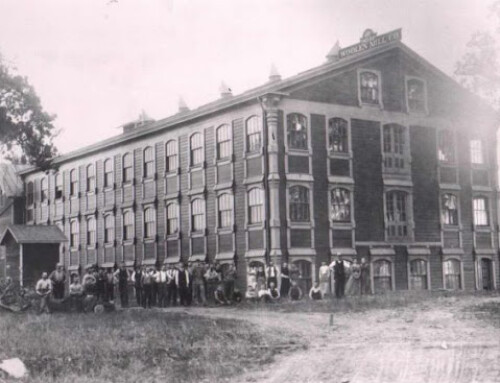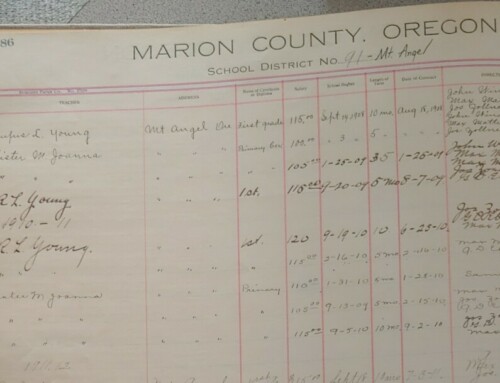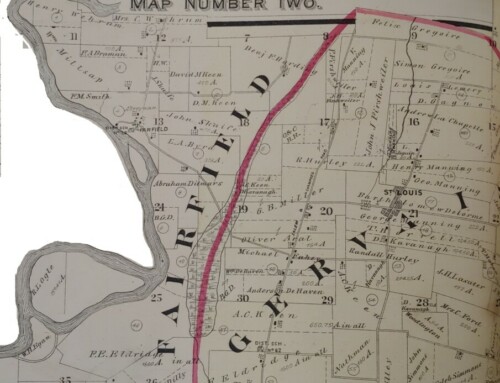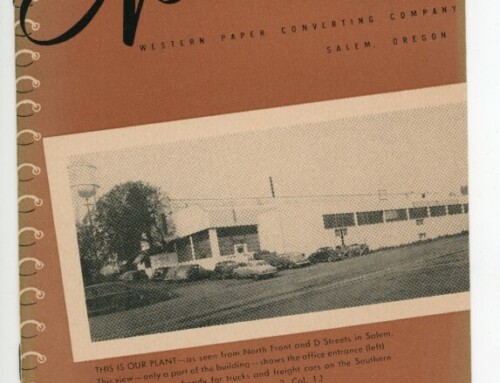by Richard van Pelt, WWI Correspondent
Once the dominos began to fall readers had difficulty keeping up with the news. The Capital Journal reported “The Days Doings In Europe Told In Brief Paragraphs:
All Europe was arming tonight.
The war outlook was most threatening.
The Kaiser toiled hard all day to persuade the czar from interfering between Austria and Servia.
Russia,however, continued to mobilize troops on the German and Austrian frontiers.
Late in the day it was said on high authority in Berlin that Germany would mobilize in 24 hours unless Russia ceased military activities.
This was looked on as much in the nature of an ultimatum to the czar.
Still later the kaiser called his advisors into conference with him and it was generally thought the czar had rejected his overtures or that the kaiser had been told he was about to do so.
German troops were already on the move toward the Russian frontier.
***
Food prices jumped to such a point in Austria that the government fixed a maximum to be observed on pain of imprisonment.Reports were current of explosions in Warsaw and an anti-Russian rising of Poles, but this was denied and the explosions were attributed to lightning.
France was concentrating troops on the German frontier and it was reported Germany meant to expel all French from Alsace-Lorraine.
Belgium was mobilizing to preserve its neutrality.
Socialists were trying to paralyze war preparation by organizing a Europe-wide general strike.
A fleet of British warships sailed for an unknown destination.
Austria having declared war, it does not seem possible that the other important European powers can keep clear of it, and this in spite of the fact that none of them have anything to fight about and no desire to fight. Outside of those who are directly interested, the sympathy of the world is with Servia rather than Austria. This because Servia is the smaller, and a fighter. With her sister Balkan states, she whipped the Turk and won for herself an outlet on the Adriatic. This Austria for no other reason than because it was her pleasure to do so, took from her by establishing the little farcical kingdom of Albania, thus shutting Servia off from the ocean and robbing her of the fruits of her hard-earned victory. Austria gets but little sympathy on this side of the Atlantic, except from those who claim her as their native land.
An op-ed piece by Sidney Gulick addressed the immigration issue of the day, the discrimination and resentment against Japanese-Americans.
 The Statesman reported that “Austria’s formal declaration of war against Servia was followed by a violent decline in quoted values on the local stock exchange today, preceded by convulsive disturbances at leading financial centers abroad.” During World War I, the United States adhered to the gold standard. With the outbreak of war, European nations sought to repatriate vast amounts of bullion. Secretary McAdoo stated the “the United States had no cause for alarm and that gold repatriated now would return as belligerent nations bought food and supplies from this nation.”
The Statesman reported that “Austria’s formal declaration of war against Servia was followed by a violent decline in quoted values on the local stock exchange today, preceded by convulsive disturbances at leading financial centers abroad.” During World War I, the United States adhered to the gold standard. With the outbreak of war, European nations sought to repatriate vast amounts of bullion. Secretary McAdoo stated the “the United States had no cause for alarm and that gold repatriated now would return as belligerent nations bought food and supplies from this nation.”
The chaos war created for the markets is described from the Chicago Board of Trade:
Wheat Pit Goes Crazy
Chicago. July 28 – The wildest scenes witnessed in the wheat pit of the board of trade here since the opening of the twentieth century were precipitated today by Austria’s declaration of war against Servia.
Transactions totally nearly one hundred million bushels sent pricers skyward, the net rises being from 8 1/4 to 9 1/4 cents.
Makes $5000 a Minute
Stories of fortunes made and lost were numerous, the most specific case of sudden riches being that of a heretofore obscure trader, who actually pocketed $25,000, which he had netted in an interval of exactly five minutes.
Hundreds of spectators thronged the allures watching the traders struggling in the pit. The uproar was plainly audible in the streets surrounding the board of trade building.
Big Margins Required
The risk of speculating at all in such a frenzied market formed strangely one of the elements that promises to bring about speedy order, notwithstanding that the close today was at the tip top of the excitement, with values at the highest pinnacle reached. How hazardous the situation was deemed tonight was shown by the action of leading firms in demanding that all customers put up margins of 20 cents a bushel on every trade.
The first throb of excitement was given when the news came that quotations had been discussed at Paris. Bullish feeling rose rapidly after advices were received that Germany would stand aloof from any peace conference. Even after the bulletin of the declaration of war there was a check in the shape of a report that Servia had conceded everything asked. It was dispatches later seeming to involve Russia and Great Britain that carried speculators completely off their feet.
In the end the mark resolved itself into a spectacle of bulls frantically selling to bulls.
We know New Jersey today as a state known for the politics of quid pro quos. In 1914, it seems, the judicial system also had an interesting twist on quids and pros:
Condemned To Matrimony
Before a New Jersey judge appeared a young man arrested for intoxication. The young man was in the habit, it seems, of getting into trouble from this cause. The judge sentenced him to marry within thirty days.
To marry within thirty days!
The judge thought the young man would “straighten up and settle down” when once committed to the hoody bonds.








Leave A Comment